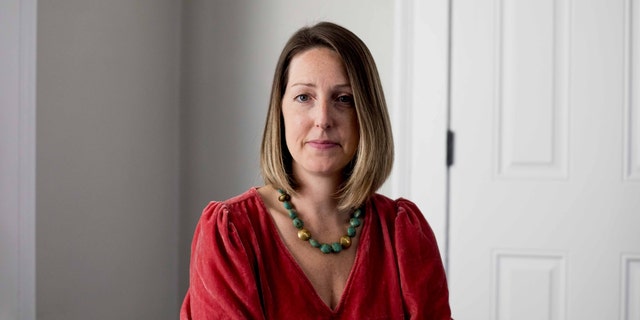Indiana judge rules probe over 10-year-old’s abortion can continue
A judge ruled Friday that Indiana Republican Attorney General Todd Rokita can keep investigating an Indianapolis doctor who spoke publicly about providing an abortion to a 10-year-old rape victim from Ohio.
The judge’s ruling on the inquiry into Dr. Caitlin Bernad came after Rokita asked the state medical licensing board to discipline her, alleging that Bernard had violated state law by not reporting the girl’s abuse to state authorities, as well as violated patient privacy laws by telling an Indianapolis Star reporter about the girl’s treatment.
His complaint asked the board to impose “appropriate disciplinary action.”
“Dr. Bernard violated the law, her patient’s trust and the standards for the medical profession when she disclosed her patient’s abuse, medical issues, and medical treatment to a reporter at an abortion rights rally to further her political agenda,” the attorney general’s office said in a Wednesday statement. “Simply concealing the patient’s name falls far short of her legal and ethical duties here.”
INDIANA AG ASKS FOR PENALTY FOR DOCTOR WHO SPOKE OF 10-YEAR-OLD’S ABORTION
“This case is not about whether an abortion was performed. It also is not about the office exposing anyone’s medical file. Those were arguments designed to thwart our investigation into the physician’s behavior,” it added.
The controversial account made waves in the weeks after the U.S. Supreme Court overturned Roe v. Wade.
Bernard said doctors determined that the girl was unable to have an abortion in Ohio due to the state’s “fetal heartbeat” law banning abortions from the time cardiac activity can be detected in an embryo.
A 27-year-old man has since been charged with raping the girl in Columbus, Ohio.
An attempt to block the probe into Bernard was rejected by Marion County Judge Heather Welch.

Bernard and her attorneys maintain that the girl’s abuse had already been reported to the authorities in Ohio before she ever saw her, and argue that the anti-abortion Rokita has been spreading misleading or false information about the Indianapolis physician for months.
She filed a lawsuit against the state attorney general last month, arguing that his office was wrongly justifying the investigation with frivolous” consumer complaints submitted by people with no personal knowledge about the girl’s treatment.
APPEALS COURT REINSTATES INDIANA FETAL CREMATION LAW
Welch, however, ruled that the medical licensing board now had jurisdiction over the matter.
No hearing date had been set as of Friday.
The judge did find that Rokita had wrongly made public comments about investigating Bernard before his complaint was filed.

She also ruled in a separate lawsuit that Indiana’s abortion ban violates the state’s religious freedom law, although the state’s abortion ban has been on hold since September.
Bernard’s attorney criticized Rokita for violating his “duty of confidentiality” and taking the case out of the judge’s hands.
“We are confident in the record and testimony that we have already developed and look forward to presenting Dr. Bernard’s evidence to the Medical Licensing Board,” Kathleen DeLaney said, according to The Associated Press.
The attorney general’s office celebrated the ruling as a “win for patient privacy rights” and for “properly reporting child abuse,” writing in a statement that the case was not really about abortion despite those who make it appear that way.
“The doctor and her attorneys initiated this media frenzy from the beginning, and it continues to draw attention to this innocent little girl who is trying to cope with a horrific trauma,” it said. “The [office] will continue to fight for patients’ rights and safety in this and other situations.”
Public records obtained by The Associated Press show that Bernard had met Indiana’s required three-day reporting period for an abortion performed on a girl younger than 16.
Deputy Attorney General Caryn Nieman-Szyper said last week that Bernard would not be under investigation if she had not disclosed the girl’s rape to a reporter to advance her own advocacy of abortion rights, adding that Bernard had not shown that she had permission from the girl’s family to discuss her care in public.
The Associated Press contributed to this report.
Read the full article Here


